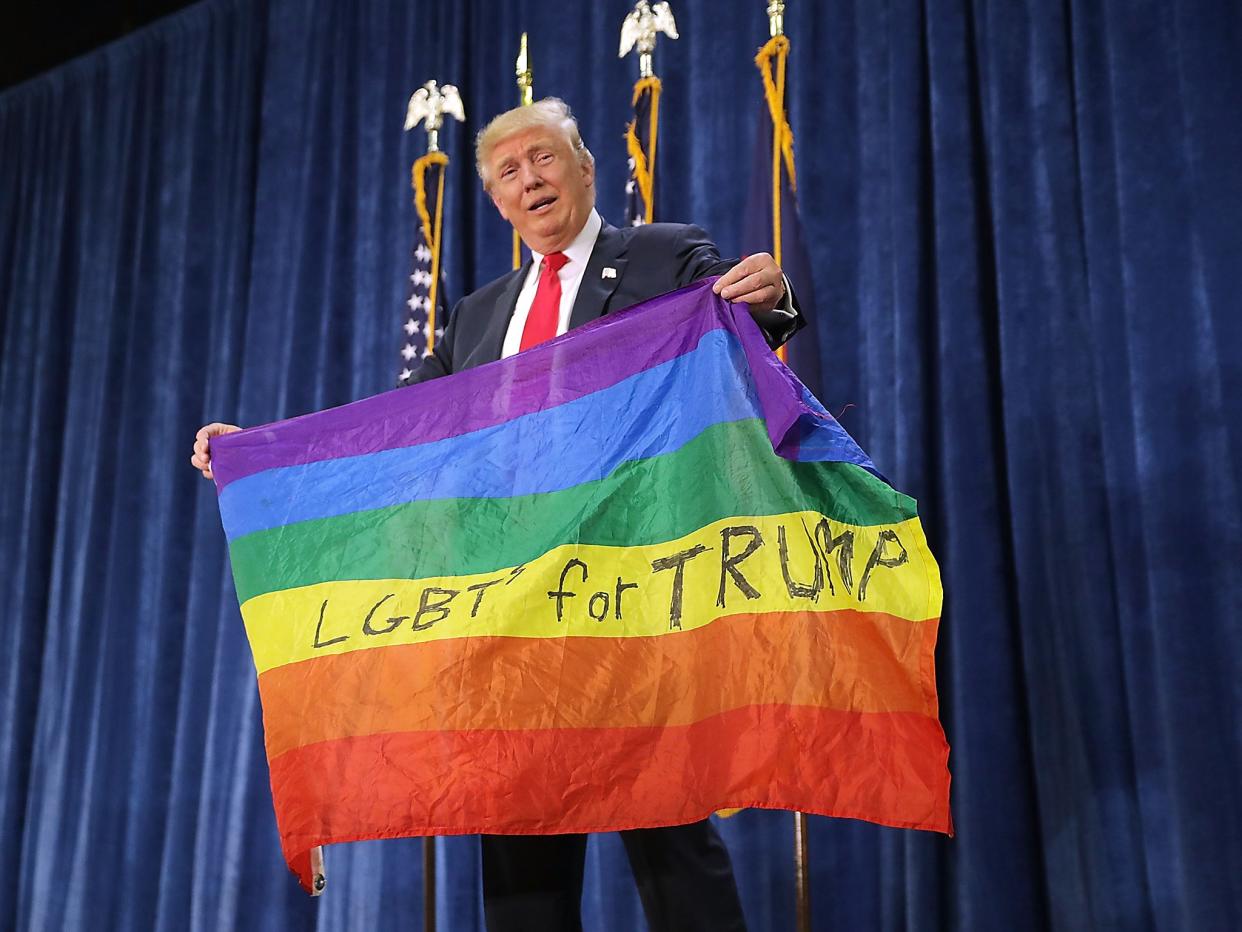Trump is erasing gay people like me from American society by keeping us off the census

As a gay man, I literally don’t count in America. Despite previous reports that we would be counted for the first time in history, this week the Trump administration announced that LGBT Americans will not be included in the 2020 census. The move was met with swift condemnation by LGBT rights groups and on social media.
It’s not surprising that the Trump administration doesn’t want to know just how many of us there are considering he’s rolling back our rights at record pace. If I were him I wouldn’t want to know how many people I’ve ticked off either. But that doesn’t change the fact that this is an issue of importance to the LGBT community – one that has far reaching consequences.
Data collection is not the sexiest topic, nor is it at the forefront of many LGBT peoples’ minds. Yet as Congress and state assemblies legislate on our community, whether in trying to pass a federal Employment Non-discrimination Act or trans “bathroom bills” such as North Carolina’s infamous HB-2, it helps to have an accurate understanding of just how many of us there are. It becomes a lot harder to deny LGBT people our civil rights and protections when we are no longer some abstract group but rather a visible, countable constituency. It would be a lot more difficult for elected officials to vote against our interests when they could identify just how many of their constituents would be negatively affected.
Being included in the decennial census would have been a huge step forward in LGBT acceptance and equality. After all, this is the document that tells us who we are as a country. Inclusion in the census is also a boldly symbolic measure that validates LGBT citizens’ place in the fabric of America. The census tracks demographic changes among a number of groups. Being included in the census is a recognition by the government that you exist, that you’re American, and that you count, too.
Counting, it turns out, is very important. As Lambda Legal, a major US LGBT rights group, pointed out the census “helps determine the allocation of federally funded social services that are critical to so many members of the LGBTQ community.” After all, we know that LGBT people are disproportionately likely to be impoverished. According to Adam Heintz of anti-poverty group Legal Services NYC, just over 20 per cent of single LGB Americans are living on less than $12,000 a year, single LGB parents are three times more likely to be impoverished than their straight counterparts.
This matters immensely when looking at how things like food stamps, Medicaid, and welfare are allocated and tracking trends in federal programmes and economic inequality over time. Right now it is incredibly difficult to do so. Think tanks like UCLA’s Williams Institute and polling companies like Gallup can only amalgamate other polls to come up with estimates of how many LGBT Americans there are, let alone how many poor LGBT Americans there are. The census would give us hard numbers to work with, which could help us better address these issues and ensure that LGBT taxpayers are receiving their fair share of government benefits.
There are not only no credible arguments against including us in the census, but no arguments whatsoever. The Census Bureau has said only that our preliminary inclusion was a “mistake” (though many people are sceptical of this, instead blaming the Trump administration). They’re not even trying to blame it on cost (which would be marginal). No, it seems that the only reason we are again being excluded from the census is the spiteful hatred of this administration and the Republican Party in general. It is homophobia and transphobia, full stop.
The census is about so much more than data collection. It’s about fairness in allocating resources. It’s about tracking hate crimes as relative to proportional population. And it’s about who gets to be included as Americans.
I am a gay American, and I count. I count when I pay my taxes. I count when I vote. And I should count when it comes to counting, too.

 Yahoo News
Yahoo News 
